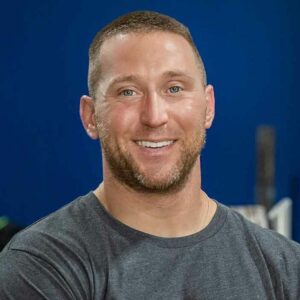The fundamentals of athleticism are always tried and true when it comes to achieving results. Achieving results is a long-term game that requires an excruciating amount of patience, dedication, and consistency by showing up every day and addressing a multitude of factors that play a role in an athlete’s overall success. Training, nutrition, mindset, recovery, sleep, etc.
At Top Performance Strength our underlying philosophy is to take a long-term approach to athletic development. When it comes to how we approach training our athletes, we “slow cook” the process, meaning we take our take to teach them the fundamentals and own them before progressing to more advanced stages of training.
Taking the time to develop the fundamentals throughout an athlete’s career at the early stages of training is about setting them up for future success. We want to mitigate injury risk, keep them healthy, and enhance performance in all arenas of strength and conditioning, nutrition, and recovery. This requires developing the fundamentals and mastering them before progressing forward to more advanced stages of development.
The way we train a 13U player is drastically different than how we train a high school player who wants to play in college, or how we approach training a college player at the junior college level whose goal is to play at the division 1 level. Where they are in their current physical development is drastically different and requires an individualized approach. This isn’t to say you won’t see both athletes executing similar exercises and movement patterns.
A division one athlete who is on the cusp of potentially getting drafted going into their final college season requires a much more advanced approach as we touched upon. They may be at a level where they have maxed out on strength to a point of diminishing returns and throwing more weight on the bar can potentially be taking away other physical qualities they are lacking or not fully developed. This is the difference maker and can change the game for them if we can discover where we need to train to help them gain that extra 1% of getting better every day.
Now take the 13U athlete who has minimal training experience in the weight room and they’re just beginning to develop general athletic qualities. Would it make sense for them to be jumping on a 36-inch box or performing speed deadlifts or squats monitoring their bar speed with a speed sensor? I would argue it’s not considering they can throw their technique out the window and they haven’t developed sufficient strength to perform such advanced methods.
It’s a process I try to engrain in them. When they see a college athlete performing such advanced methods, they get excited and want to gravitate towards executing them without first executing the fundamentals that lead to them getting there in the first place.
We have strength standards and benchmarks we want our athletes to achieve before earning the right to move forward in their training. Progression can apply to anything we do. It’s progressing from a dumbbell deadlift to a hex bar deadlift. It’s progressing from a 12-inch box jump to an 18-inch box jump. It’s adding 5 pounds to the bar from one week to the next and over time a total of 20 pounds in one month and 60 pounds in three months.
We’re accustomed to only seeing the results, not the process that it took to get the results and the daily, weekly, monthly, and yearly investment it took to achieve the results. So much of what we’re inundated with on social media is not only flashy and show’s high-level results, but it also fails to show the process of athletes investing in the basics day in and day out for years on end.
Fortunately, I’m in a position where youth athletes are training and working among high school, college, and sometimes professional athletes. They can see what the future looks like for them if they continue to show up daily, weekly, monthly, year after year after year. From the beginning to the end of their athletic playing career’s, executing the fundamentals of athleticism will always be tried and true.
Contact: Kip Steingart, Owner Top Performance Strength
Email: support@topperformancestrength.org
Cell: (847)542-5213
Website: www.topperformancestrength.net


